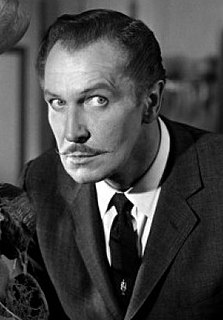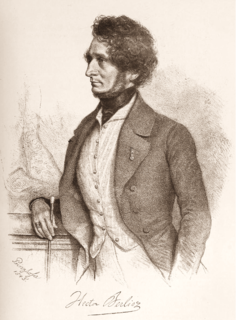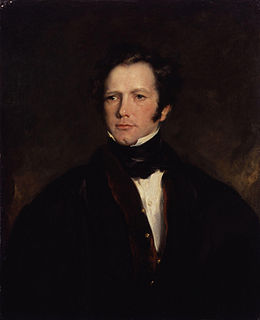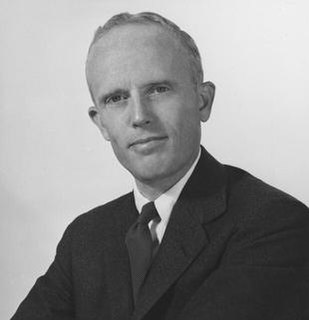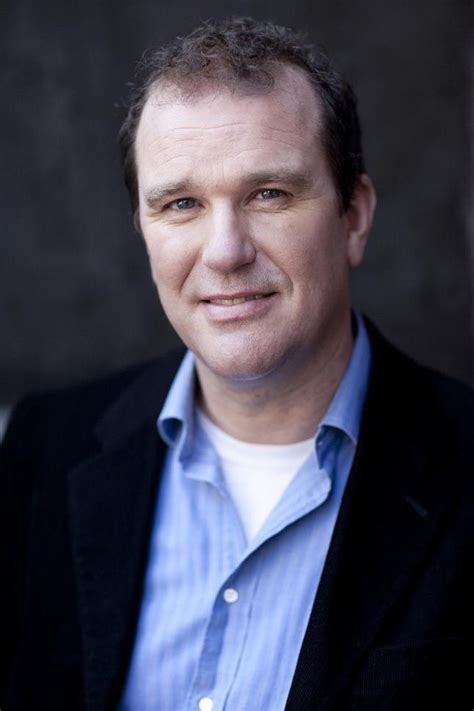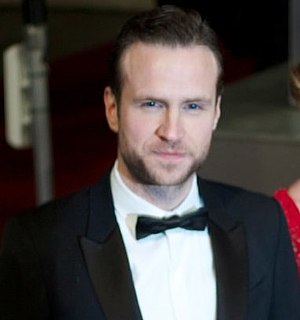Top 346 Hamlet Quotes & Sayings - Page 6
Explore popular Hamlet quotes.
Last updated on April 17, 2025.
No! I am not Prince Hamlet, nor was meant to be; Am an attendant lord, one that will do To swell a progress, start a scene or two, Advise the prince; no doubt, an easy tool, Deferential, glad to be of use, Politic, cautious, and meticulous; Full of high sentence, but a bit obtuse; At times, indeed, almost ridiculous— Almost, at times, the Fool.
And when this happens, when we allow freedom ring, when we let it ring from every village and every hamlet, from every state and every city, we will be able to speed up that day when all of God's children, black men and white men, Jews and Gentiles, Protestants and Catholics, will be able to join hands and sing in the words of the old Negro spiritual: Free at last! Free at last! Thank God Almighty, we are free at last!
When we look to presumed sources of origin for competing evolutionary explanations of the giraffe's long neck, we find either nothing at all, or only the shortest of speculative conjectures. Length, of course, need not correspond with importance. Garrulous old Polonius , in a rare moment of clarity, reminded us that "brevity is the soul of wit" (and then immediately vitiated his wise observation with a flood of woolly words about Hamlet 's Madness.
I am in Birmingham because injustice is here. Just as the eighth century prophets left their little villages and carried their "thus saith the Lord" far beyond the boundaries of their home towns; and just as the Apostle Paul left his little village of Tarsus and carried the gospel of Jesus Christ to practically every hamlet and city of the Graeco-Roman world, I too am compelled to carry the gospel of freedom beyond my particular home town. Like Paul, I must constantly respond to the Macedonian call for aid.
Each religion is a brave guess at the authorship of Hamlet. Yet, as far as the play goes, does it make any difference whether Shakespeare or Bacon wrote it? Would it make any difference to the actors if their parts happened out of nothingness, if they found themselves acting on the stage because of some gross and unpardonable accident? Would it make any difference if the playwright gave them the lines or whether they composed them themselves, so long as the lines were properly spoken? Would it make any difference to the characters if 'A Midsummer Night's Dream' was really a dream?
This is a good look. I'm gonna mess him up," Pattinson praises Stewart. "And I'm just like, I don't know what's going on? Where am I? I just walked out of a flower bed in this scene as well.... I was standing in the flower bed and then walked out of it and then stopped and looked confused.... If I didn't have contact lenses on, that was a really spectacular look I just did.... I should have had million thoughts, like Hamlet.
If religious books are not widely circulated among the masses in this country, I do not know what is going to become of us as a nation. If truth be not diffused, then error will be. If God and His Word are not known and received, the devil and his works will gain the ascendency. If the evangelical volume does not reach every hamlet, the pages of a corrupt and licentious literature will. If the power of the gospel is not felt throughout the length and breadth of this land, anarchy and misrule, degradation and misery, corruption and darkness will reign without mitigation or end.
Right at this moment, I only want silence. I believe that the end of life is silence in the love people have for you. I've actually been running through what people have said about the end. Religion says that the end is one thing, because it serves their purpose. But great thinkers alike haven't always agreed. Shakespeare knew how to say it better than anyone else. Hamlet says 'The rest is silence.' And when you think of the noises of everyday life, you realize how particularly desirable that is. Silence.
Bush has not read enough books to have a developed moral sense. The fewer books you read, the easier it is to become fundamental. In some ways my antiwar stand here is also a stand on anti-literacy. Someone should get G.W. into a reading program, get him to join a book club. Have him read Hamlet, King Lear.
Each hamlet or village or town should be a place, its own place. This is not a matter of fake historicism or artsy-craftsy architecture. It is a matter of respect for things existing, subtle patterns of place woven from vistas and street widths and the siting and color and scale of stores, houses, and trees... If the countryside is to prosper, it must be different from city or suburb... The difference is in part the simple business of containing our towns and giving them boundaries.
One learned gentleman, "a sage grave man," Talk'd of the Ghost in Hamlet, "sheath'd in steel"— His well-read friend, who next to speak began, Said, "That was poetry, and nothing real;" A third, of more extensive learning, ran To Sir George Villiers' Ghost, and Mrs. Veal; Of sheeted Spectres spoke with shorten'd breath, And thrice he quoted Drelincourt on Death.
One of the first roles I had on stage was with a brilliant director in a brilliant play with a brilliant cast, but I just couldn't find my way into the heart of the character. I found myself straining a lot. When it started. I felt lost. That was the Eugène Ionesco play Rhinoceros. I don't think I was prepared for that. I don't think I had the full tool kit to do it justice. It's a very difficult play, it's an extraordinarily difficult part, and I never felt I really got it right. Far from it. To a degree, Hamlet was the same.
Theater roles are written by the great masters. The greatest literature that you can possibly know are the theater roles like King Lear, Hamlet, and all of those great roles. So all you do is you dive into these unchallenged roles and see how far you can get, what kind of accolades you can get, and how good you can be in them. In movie roles, you can actually improve them by knowing a lot about your own stage technique, which helps a great deal in the cinema and how you can project inner humor even though the particular dialogue is not necessarily funny, but you can infuse it with humor.
It's actually now, more common to see conceptual productions of Shakespearian, which Hamlet is played as a Nazi, or a homosexual, or whatever concept is being laid over the play, then it is to see a production of Shakespeare in which there is no conceptual overlay and the play is simply being presented on its own terms.
It's just like they approach things on every movie I've worked on, very much as if it was a live-action movie. The character you're playing, even though he's a rooster and is really stupid, you approach it in the same way you would approach Hamlet, which is exactly how I approached it. But they give you the circumstances. "You're on the boat. You didn't expect to be here. You just climbed in a boat to maybe sleep. You don't even know why you climbed in the boat. You're really that dumb.
I will not go so far as to say that to construct a history of thought without profound study of the mathematical ideas of successive epochs is like omitting Hamlet from the play which is named after him. That would be claiming too much. But it is certainly analogous to cutting out the part of Ophelia. This simile is singularly exact. For Ophelia is quite essential to the play, she is very charming . . . and a little mad.
From May until October, the Ottoman Government pursued methodically a plan of extermination far more hellish than the worst possible massacre. Orders for deportation of the entire Armenian population to Mesopotamia were dispatched to every province of Asia Minor. These orders were explicit and detailed. No hamlet was too insignificant to be missed. The news was given by town criers that every Armenian was to be ready to leave at a certain hour for an unknown destination.
What Hamlet suffers from is a lack of zombies. Let us say Rosencrantz and Guildenstern show up—Ho-HO! Now you’ve got something that stirs the, um, something that stirs things that are stirrable. BOOM! A pack of ravenous flesh-eaters breaks open their heads and sucks out their eyeballs. No need for iambic pentameter because they are grunting, groaning annihilators of humanity with no time for meter. You’re not asleep in the back of English class anymore, are you? This is what I’m talking about. Zombies. Learn it, live it, love it.
I think something must happen to you when you get into eight grade. Like the Doug Swieteck's Brother Gene switches on and you become a jerk.
Which may have been Hamlet, Prince of Denmark's problem, who, besides having a name that makes him sound like a breakfast special at Sunnyside Morning Restaurant--something between a ham slice and a three-egg omelet--didn't have the smarts to figure out that when someone takes the trouble to come back from beyond the grave to tell you that he's been murdered, it's probably behooveful to pay attention--which is the adjectival form.
It is difficult to put into words what I suffered-the longing that seemed to be tearing my heart out by the roots, the dreadful sense of being alone in an empty universe, the agonies that thrilled through me as if the blood were running ice-cold through my veins, the disgust with living, the impossibility of dying. Shakespeare himself never described this torture; but he counts it, in Hamlet, among the terrible of all the evils of existence. I had stopped composing; my mind seemed to become feebler as my feelings grew more intense. I did nothing. One power was left to me-to suffer.
But what was most remarkable, Broadway being three miles long, and the booths lining each side of it, in every booth there was a roast pig, large or small, as the centre attraction. Six miles of roast pig! And that in New York City alone; and roast pig in every other city, town, hamlet, and village in the Union. What association can there be between roast pig and independence?
Actors are so fortunate. They can choose whether they will appear in tragedy or in comedy, whether they will suffer or make merry, laugh or shed tears. But in real life it is different. Most men and women are forced to perform parts for which they have no qualifications. Our Guildensterns play Hamlet for us, and our Hamlets have to jest like Prince Hal. The world is a stage, but the play is badly cast.
Miss Havisham is an important feminine literary figure in the tradition of Antigone (though it's significant that Antigone is fighting to bury something and Miss Havisham refuses, as it were, to bury the corpse). Like Hamlet, she's focused on what everyone would rather not know or would like to forget, and she seems crazy / stuck as well as bitter, but she's also a perfect prototype of a performance artist. She's intentionally hard to deal with inviting the audience to remain with the violated body, the evidence of violence.
John Calvin's theology emphasizes the sanctity of conscience, the sanctity of companionate marriage, and the obligation of those in power to attend to the well-being of the people in general, especially the poor. Interestingly, for the interpretation of Hamlet, for example, he forbids even the thought of revenge. This is not the Calvin of myth, but when the Elizabethans read him there was no such myth, nor would there be now, if he were read.
Shakespeare carries us to such a lofty strain of intelligent activity, as to suggest a wealth which beggars his own; and we then feel that the splendid works which he has created, and which in other hours we extol as a sort of self-existent poetry, take no stronger hold of real nature than the shadow of a passing traveller on the rock. The inspiration which uttered itself in Hamlet and Lear could utter things as good from day to day, for ever.
Cannot you tell that? Every fool can tell that. It was the very day that young Hamlet was born, he that is mad and sent into England." "Ay, marry, why was he sent into England?" "Why, because he was mad. He shall recover his wits there, or, if he do not, it's no great matter there." "Why?" "'Twill not be seen in him there. There the men are as mad as he.
Could Hamlet have been written by a committee, or the "Mona Lisa" painted by a club? Could the New Testament have been composed as a conference report? Creative ideas do not spring from groups. They spring from individuals. The divine spark leaps from the finger of God to the finger of Adam, whether it takes ultimate shape in a law of physics or a law of the land, a poem or a policy, a sonata or a mechanical computer.
I don't expect Christians to see God as a metaphor, but that's what he is. Perhaps it might be clearer to call him a character in fiction, and a very interesting one too: one of the greatest and most complex villains of all - savage, petty, boastful and jealous, and yet capable of moments of tenderness and extremes of arbitrary affection - for David, for example. But he's not real, any more than Hamlet or Mr Pickwick are real. They are real in the context of their stories, but you won't find them in the phone book.
All her knowledge is gone now. Everything she ever learned, or heard, or saw. Her particular way of looking at Hamlet or daisies or thinking about love, all her private intricate thoughts, her inconsequential secret musings – they’re gone too. I heard this expression once: Each time someone dies, a library burns. I’m watching it burn right to the ground.
What I love in a woman is not what she is in and for herself, but the side of herself she turns towards me, what she is for me. I love her as character in our common love story. what wuld Hamlet be without the castle at Elsinore, without Ophelia, without all the concrete situations he goes through, what would he be without the text of his part? What would be left but an empty, dumb, illusory essence?
If you're a classical actor, every Shakespearean part you play, you then say, 'McKellen did it this way,' and, 'Jacobi did it this way.' There's a whole list of Oliviers and people, whether you play Hamlet or Richard II or Richard III, any of those roles. And I found that a bit when I did 'La Cage.' It didn't bother me one bit.
I get all my ideas in Switzerland near the Forka Pass. There is a little town called Gletch, and two thousand feet up above Gletch there is a smaller hamlet called Über Gletch. I go there on the fourth of August every summer to get my cuckoo clock fixed. While the cuckoo is in the hospital, I wander around and talk to the people in the streets. They are very strange people, and I get my ideas from them.
There are reviews that are clearly wrong. Dr. Johnson's famous Life of Savage, he's clearly wrong about the value of Savage. But it's one of the great works in English literature. You can learn more about the artistic expression and what the poet does and how to write about art from that than any number of guys who are terrible writers, who have no original ideas, but who say yes, "Hamlet" is a wonderful play. It's a meaningless statement.
Put yourself in Hamlet's shoes. Suppose you were a prince, and you came back from college to discover that your uncle had murdered your father and married your mother, and you fell in love with a beautiful girl and mistakenly murdered her father, and then she went crazy and drowned herself. What would you do? Go back for a masters?
I love doing comedy, I really do. It was perhaps my first love. And I think, as an actor, you're young and you do school plays and the reason you go 'I might do more of this' is because you make people laugh in a school play. You don't go and do Hamlet when you're nine and go: "I feel people were really moved out there!" You do a silly voice and everyone laughs and you go: "Ooh, that feels quite nice. I might make a life out of this!"
It's hard to not get typed in Hollywood. They really want to type you. I'm trying to avoid that, because I want to do a lot of things. I know what I'm capable of. I forgive them because they don't know. They haven't seen me play Hamlet. They're not going to cast me as an English aristocrat. I'm going to have to prove that on my own. That's okay. That's what you have to fight for if you want to be an artist.
You can't just skip the boring parts." "Of course I can skip the boring parts." "How do you know they're boring if you don't read them?" "I can tell." "Then you can't say you've read the whole play." "I think I can live a happy life, Meryl Lee, even if I don't read the boring parts of The Tragedy of Hamlet, Prince of Denmark." "Who knows?" she said. "Maybe you can't.
The training gave me the building blocks to get through it. A production of that scale, in a theater that big, you are going to struggle to keep your voice at first-run perfectness. All that work I did - the pull-ups and pushups - helped keep my body fit. Hamlet, the show, is a cardiovascular workout of about three hours, never mind the mental, soul-crushing element of it.
For me, life without literature is inconceivable. I think that Don Quixote in a physical sense never existed, but Don Quixote exists more than anybody who existed in 1605. Much more. There's nobody who can compete with Don Quixote or with Hamlet. So in the end we have the reality of the book as the reality of the world and the reality of history.
Even in the tragedies, Shakespeare always put in parts for the comic actors because his audience was mixed. He puts in people who talk like aristocrats. He puts in idiots and fools. He puts in certain middle-range characters. And when you go to the Globe, you realize how that all works. The people who paid more sat in seats around the edge. Everybody else paid a penny. They put it into a tin box - that's why we call it the "box office." They stood in the pit, but they were very close, so when Hamlet was doing his soliloquy, it was addressed to you, the audience - right there.
What a benefit would the American government, not yet relieved of its extreme need, render to itself, and to every city, village and hamlet in the States, if it would tax whiskey and rum almost to the point of prohibition! Was it Bonaparte who said that he found vices very good patriots? "He got five millions from the love of brandy, and he should be glad to know which of the virtues would pay him as much." Tobacco and opium have broad backs, and will cheerfully carry the load of armies, if you choose to make them pay high for such joy as they give and such harm as they do.
You travel the world, you go see different things. I like to see Shakespeare plays, so I'll go - I mean, even if it's in a different language. I don't care, I just like Shakespeare, you know. I've seen Othello and Hamlet and Merchant of Venice over the years, and some versions are better than others. Way better. It's like hearing a bad version of a song. But then somewhere else, somebody has a great version.
I don't think Roger Ebert has ever mentioned a screenplay. He assigns every auctorial move to the director, which makes some sense since the director has run a one-off game, but if Hamlet were written last year and had been only performed once as a film, and it didn't come off well on screen for whatever reason, it would be gone forever as a literary work, and never would have been considered as one.
Young screenwriters are always very frustrated when they talk to me. They say, 'How do we get to be a screenwriter?' I say, 'You know what you do? I'll tell you the secret, it's easy: Read 'Hamlet.' You know? Then read it again, and read it again, and read it until you understand it. Read 'King Lear,' and then read 'Othello.'







